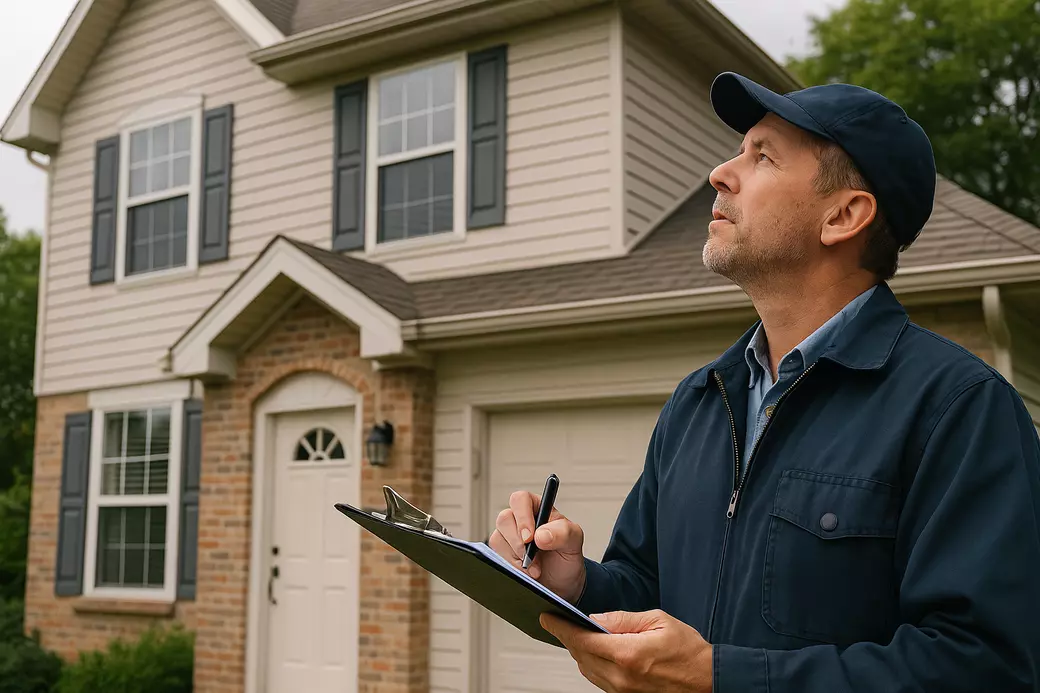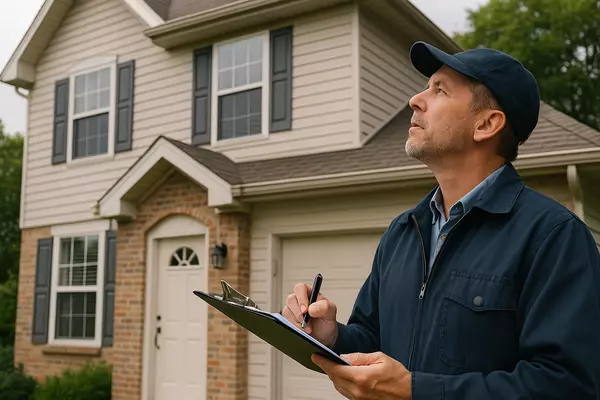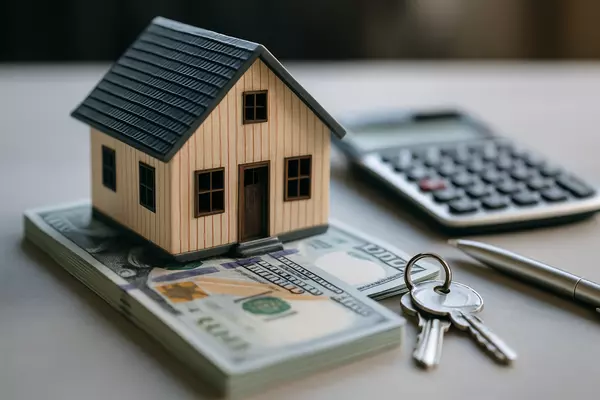The Complete Guide to Home Inspections on Long Island: What Every Buyer and Seller Needs to Know

The Complete Guide to Home Inspections on Long Island: What Every Buyer and Seller Needs to Know
Home inspections are among the most critical steps in any Long Island real estate transaction. Whether you're buying a charming colonial in Nassau County or selling a waterfront property in Suffolk County, understanding the inspection process can mean the difference between a smooth closing and costly surprises. This comprehensive guide covers everything you need to know about home inspections on Long Island—from choosing qualified inspectors to interpreting results and negotiating repairs.
Understanding Home Inspections on Long Island
A home inspection is a thorough evaluation of a property’s condition, systems, and components performed by a qualified professional. With homes ranging from historic estates to modern constructions, inspections are vital due diligence that protects both buyers and sellers.
The Purpose of Home Inspections
- Buyer Protection: Understand a property’s true condition and identify potential issues before making a financial commitment.
- Seller Preparation: Proactive sellers use pre-listing inspections to fix problems before listing, reducing negotiation surprises.
- Safety Assurance: Inspections uncover hazards such as electrical, structural, or environmental issues that could affect occupants.
- Financial Planning: Knowing the property’s condition helps buyers budget for immediate repairs and long-term maintenance.
Long Island-Specific Inspection Considerations
- Coastal Environment: Properties near the coastline face salt air corrosion, flood risks, and potential hurricane damage.
- Older Housing Stock: Many homes are 50–70 years old and may have outdated systems needing updates.
- Basement Conditions: High water tables and clay soils cause frequent basement moisture concerns.
- Pools and Spas: Specialized inspections are often needed for properties with these amenities.
Types of Home Inspections
Standard Home Inspection
A typical inspection takes 2–4 hours and includes:
- Structural Components: Foundations, framing, roof, exterior walls, windows, doors, stairs.
- Mechanical Systems: Heating & cooling, electrical panels and wiring, plumbing, water heater, ventilation, insulation.
- Interior Elements: Flooring, walls, ceilings, kitchen appliances, bath fixtures, doors, built-ins.
Specialized Inspections
- Termite & Pest: Essential due to local termite activity.
- Radon Testing: Recommended for all Long Island homes.
- Mold: Important in humid climates and homes with moisture issues.
- Septic System: Required for properties not on municipal sewer (common in eastern Suffolk).
- Well Water Quality: Necessary for houses with private wells.
- Pool & Spa: Assesses condition, compliance, and safety of pool systems.
- Chimney: For homes with fireplaces or wood stoves.
Choosing the Right Inspector
Qualifications and Experience
- New York State License: All inspectors must be state licensed.
- Professional Memberships: ASHI, InterNACHI, or NYSAHI.
- Continuing Education: Choose inspectors who stay current with codes and technology.
- Insurance: Confirm both general liability and E&O insurance.
- Local Expertise: Inspectors should be familiar with Long Island construction, conditions, and codes.
- Technology Tools: Look for use of thermal imaging, moisture meters, and digital reporting.
Questions to Ask
- How long have you been inspecting homes on Long Island?
- What is your background and annual inspection volume?
- Do you specialize in properties like mine?
- What’s included in the inspection, and may I attend?
- How soon are reports delivered, and are follow-up questions allowed?
The Inspection Process
Scheduling & Preparation
- Timing: Schedule inspections promptly; the contingency period is typically 7–10 days after contract execution.
- Utilities: Ensure electricity, gas, and water are on.
- Access: Provide entry to all areas—basements, attics, panels, mechanicals.
- Weather: Note that adverse weather can sometimes limit what inspectors can check.
During the Inspection
- Buyer Attendance: Encouraged for educational value.
- Take Notes: Document recommendations and relevant observations.
- Ask Questions: Gain a full understanding of the home’s systems and requirements.
- Do Not Interfere: Allow the inspector to work efficiently, while remaining available for discussion.
Common Long Island Inspection Findings
- Electrical: Outdated panels, missing GFCIs, overloaded circuits.
- Plumbing: Corroded pipes, low water pressure, leaks, old water heaters.
- HVAC: Aging systems, duct inefficiencies, poor maintenance.
- Structural: Foundation cracks, roof wear, siding repairs, window & door issues.
- Moisture & Drainage: Basement moisture, gutter issues, improper grading.
Understanding Inspection Reports
Key Components
- Executive Summary: Major findings and urgent safety concerns.
- Detail Sections: Organized by area or system, with photo documentation.
- Recommendations: Immediate repairs, future maintenance, and limitations (areas not inspected).
- Interpreting Findings:
- Safety Issues: Require prompt attention.
- Major Defects: Affect habitability or significant value.
- Minor Issues: Cosmetic or routine maintenance.
- Maintenance: Routine suggestions for upkeep.
Negotiating After Inspections
- Prioritize Major Issues: Focus negotiations on safety and significant problems rather than small cosmetic flaws.
- Get Estimates: Use repair quotes to clarify negotiation stances.
- Adapt to Market Conditions: Tailor requests based on current competition and demand.
- Common Outcomes:
- Seller completes repairs before closing.
- Buyer receives a credit at closing for repairs.
- Price reduction reflecting repair costs.
- As-is acceptance, common in hot markets.
Documentation
- Repair Agreements: Should specify work scope, materials, and deadlines.
- Permits: Major repairs must be properly permitted.
- Reinspection Rights: Buyers may wish to confirm work completion.
- Warranty Options: Useful for major systems.
Special Considerations for Long Island Properties
- Coastal Property: Flood zones, corrosion, seawall condition, hurricane prep.
- Historic Homes: Original materials, code compliance, preservation.
- Luxury Homes: Complex HVAC/security, specialty amenities, high-end finishes.
- Environmental Issues: Includes radon, lead paint (pre-1978 homes), asbestos—ensure proper testing, disclosure, and remediation.
Working with Inspection Results
- Immediate Actions: Address urgent safety concerns and get specialist opinions on major defects.
- Budget Planning: Prepare realistic budgets for repairs and ongoing maintenance.
- Long-Term Maintenance: Create upkeep schedules and plan for system replacements and efficiency upgrades.
Cost Considerations
|
Service |
Typical Fee Range |
|
Standard Inspection |
$500–$800 |
|
Specialized Testing (each, e.g. radon, mold, termite) |
$150–$400 |
|
Re-inspection |
$100–$300 |
|
Rush/Expedited Service |
+$200 |
Legal and Regulatory Aspects
- State Licensing: Inspectors must maintain up-to-date New York State licenses.
- Standards of Practice: Inspectors follow prescribed scope and reporting standards.
- Disclosure Requirements: Specific rules govern what must be reported to buyers.
- Local Codes: Ensure compliance with building codes, permit rules, and zoning in your area.
Technology in Modern Inspections
- Thermal Imaging: Detects insulation flaws and hidden moisture.
- Moisture Meters: Identify water issues in structures.
- Digital Reporting: Speedy, photographic reports with organized sections.
- Drone Inspection: Aerial views for roofs and hard-to-access areas.
Conclusion
Home inspections are crucial for ensuring safe, confident, and informed real estate decisions on Long Island. Given the region’s unique mix of coastal, older, and luxury properties, experienced local inspectors and knowledgeable agents provide significant value—helping you anticipate costs, avoid surprises, and achieve peace of mind. Use the inspection process as both a protective and educational step on your homeownership journey.
Why Choose Dream Select Realty for Your Long Island Home Inspection Needs
- Trusted Network: Partnerships with the best licensed and insured local inspectors.
- Comprehensive Guidance: Every step—from scheduling to final negotiations—handled seamlessly.
- Negotiation Expertise: Agents skilled in leveraging inspection results to protect your interests.
- Local Knowledge: Insight into which findings are typical and which require real concern.
- Full Support: Assistance with scheduling, repairs, and access to reliable contractors for follow-up work.
- Educational Approach: Empowering you to understand and address inspection results confidently.
Ready to move forward? Contact Dream Select Realty at (631) 623-7117 or visit dreamselectrealty.com. Our experienced team will connect you with trusted inspectors and guide you through every step—ensuring your property experience is safe, informed, and successful.
For more inspection tips and real estate insights, visit our blog and resource center. Your peace of mind is our top priority with Dream Select Realty.
Categories
Recent Posts










